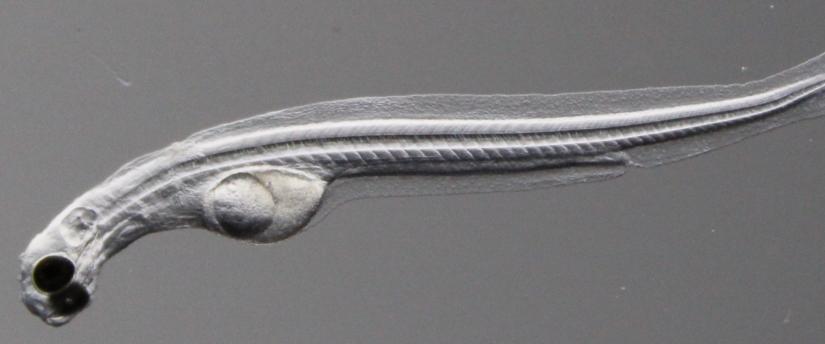
Delta Science Fellowship 2020
Fellow: Yuzo Yanagitsuru, PhD Candidate, UC Davis
Research mentor: Nann Fangue, University of California, Davis
Community mentors: Randall Baxter, California Department of Fish and Wildlife
Why this research matters
Delta and longfin smelt have declined to historical lows in the San Francisco Bay-Delta. In order to aid
their recovery, managers need to understand the interplay of multiple environmental factors such as
temperature and salinity with fish physiology. While the delta smelt, a federally endangered species, has
been heavily studied, much less is known about the longfin smelt, which is listed as a threatened species
under the California Endangered Species Act.
Project
This research project aimed to improve understanding of the physiological requirements for survival and
reproduction across the entire life history of longfin smelt (from egg to larvae to juvenile to reproducing
adult). The overall goals of this project were to assist in developing a captive longfin smelt culture and
assess longfin smelt responses to multiple stressors across all life stages, which has been difficult
because of extremely low (<10%) larval survival of these fish.
Results
To improve current culture methods, this study tested the effects of three environmental factors on
longfin smelt larvae: temperature, salinity, and turbidity (a measure of murkiness or visibility in the
water). The study identified an optimal temperature of 12℃ and between 2 and 10 parts per thousand
salinity on larvae. These thermal and saline optima have been used in culturing longfin smelt and have
substantially improved larval survival. The study also identified that larval survival and growth could be
further improved by using more turbid (murkier) water. Furthermore, this study has identified the upper
thermal and saline limits for the species to be around 15℃ and 20 parts per thousand.
Management Applications
The results of this study have already been applied to longfin smelt culture methodologies at the Fish
Conservation Culture Laboratory where the captive culture of the species is being maintained. The first
year when the study’s results identifying optimal temperature and salinity conditions have been applied
(2019-2020) have greatly improved larval survival, which has historically been <10%, to approximately
50%. By improving culture techniques, this study has established a sustainable source of longfin smelt
that will serve as the foundation for all future laboratory-based studies on longfin smelt that will be used
by state and federal agencies to inform the conservation management of the species. Furthermore, by
identifying the first tolerance metrics for the larval stage of the species to environmental stressors, this
study will allow managers to more accurately predict the responses of longfin smelt populations to
changes in environmental conditions.
Select Publications and Presentations
Yanagitsuru YR, Main, MA, Hobbs, JA, Lewis LS, Hung,TC, Connon RE, Fangue NA. (Submitted)
Effects of Temperature on Hatch and Growth Performance of Embryos and Yolk-sac Larvae of the
Threatened Estuarine Fish: Longfin Smelt (Spirinchus thaleichthys).
Yanagitsuru YR, Daza IY, Hobbs JA, Lewis LS, Hung TC, Connon RE, Fangue NA. (In Prep) Salinity
Tolerance of Yolk-sac Larvae of the Threatened Estuarine Fish: Longfin Smelt (Spirinchus
thaleichthys).
Yanagitsuru YR, Hobbs JA, Lewis LS, Hung TC, Connon RE, Fangue NA. (In Prep) Growth, Feeding,
and Survival of Longfin Smelt (Spirinchus thaleichthys) Larvae Reared At Different Turbidities.
Yanagitsuru YR, Mauduit F, Lundquist AJ, Hobbs JA, Lewis LS, Hung TC, Connon RE, Fangue NA. (In
Prep) Effects of Embryonic Temperature Acclimation on the Cardiac Thermal Tolerance of Longfin
Smelt Yolk-Sac (Spirinchus thaleichthys) Larvae.
Attachments
 Yuzo Yanagitsuru
Yuzo Yanagitsuru
